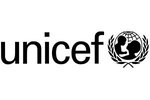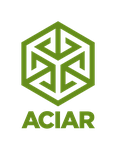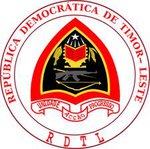Micro-learning in the Solomon Islands: readying rural youth for the workforce via smartphone
The Olgeta pilot project set out to bridge the gap between unemployed youth and skilled jobs. Here’s what we learnt.
Finding a job can be stressful. Not only do you need the required skills for the job, you need confidence to put yourself out there, and an intrinsic belief you can succeed.
For young people living in rural villages, gaining these basic skills can be a challenge. With limited internet connectivity and few opportunities to build their work experience, the temptation to venture out into the wider workforce can be understandably low.
It’s a challenge rural youth in developing nations are regularly faced with.
In the Solomon Islands, only 20% of people aged 15–24 are employed, yet there is an unmet demand for skilled workers. With an ever-increasing skills shortage and a growing ‘youth bulge’, the government is seeking innovative solutions to equip rural youth with the tools to pursue meaningful work and careers.
Micro-learning meeting the challenges of rural settings
We joined forces with two Rural Training Centres in the Solomon Islands to develop Olgeta, a micro-learning app that delivers lessons via smartphone in areas of low-to-no internet connectivity. The pilot program focused on delivering an e-learning platform that met the needs of the rural setting, by:
- Ensuring it could be used with limited internet access by enabling downloaded courses to be completed offline
- Using technologies that already exist in the community (in this case, smartphones)
- Making the courses bite-size so that participants could fit learning around family and community commitments
- Ensuring all aspects of the program and implementation were cost-effective for long term sustainability.
The program delivered four courses; financial literacy, leadership, digital skills and marketing, and health information about COVID-19 — but we found that participants took way more than just these skills (more on that later!)

Micro-learning is an emerging approach in adult education. It delivers learning content in short bursts — generally 20 minutes or less — to encourage completion and persistence.

Olgeta was many students’ first experience using a smartphone or an online app. Using our human-centred design approach and Catalpa’s Micro-Learning Management System, Bero, we worked closely with the students and teachers to include their feedback and input throughout the design.
Over six months we prototyped, tested and refined Olgeta to ensure courses were engaging, meaningful and fun, with the inclusion of videos, indicators of achievement and other interactive features. The pilot program was then implemented for a further 6 months.
What did we learn?
We learnt a lot. While participants reported increased confidence in the course content, the strongest increase in confidence was in the users’ ability to navigate using a smartphone.

“Everyone now has the confidence to use a smartphone and how to use the internet to search for information, to make phone calls, send text messages, and complete learning through an app…”

Encouragingly, there was an overall positive shift in how many students were able to think about their future careers, especially after lessons on practical skills such as savings, presentations, communication and how to write a CV.

“When I came to study here, my goal was that after I complete my study, I will look for a job. Having gone through the Olgeta courses, I also see that I can start my own business, so I’m thinking of getting a sewing machine, sew clothes and sell and then use the money earned from the sales wisely.”

Take a look at what the participants had to say:
In a nutshell, the pilot project reported:
- Participants greatly improved their confidence using a smartphone
- Students gained confidence in financial literacy, leadership, marketing and digital skills
- Teachers and students used the Olgeta app for up to 5 hours a month, with an average of 3.7 hours per month (monthly usage varied greatly due to COVID-19 lockdowns)
- The program had broadened many students’ perspective towards potential career aspirations
- Teachers and students completed an average of 207 lessons. Given, there were 46 lessons available, this means many lessons were repeated
- The advantages of a flexible, low-fi technology that can be updated quickly, for emergencies such as a pandemic.
Olgeta is an Australian Aid initiative funded through the Cyber Cooperation Program and delivered by Catalpa International as part of the Australia Solomon Islands Technology for Development Challenge.
. . . . . .
Want to learn more about Catalpa’s other projects? Visit our website at www.catalpa.io or follow us on social media (or both!).
Have any thoughts you’d like to share? Comment below! 👇🏽














